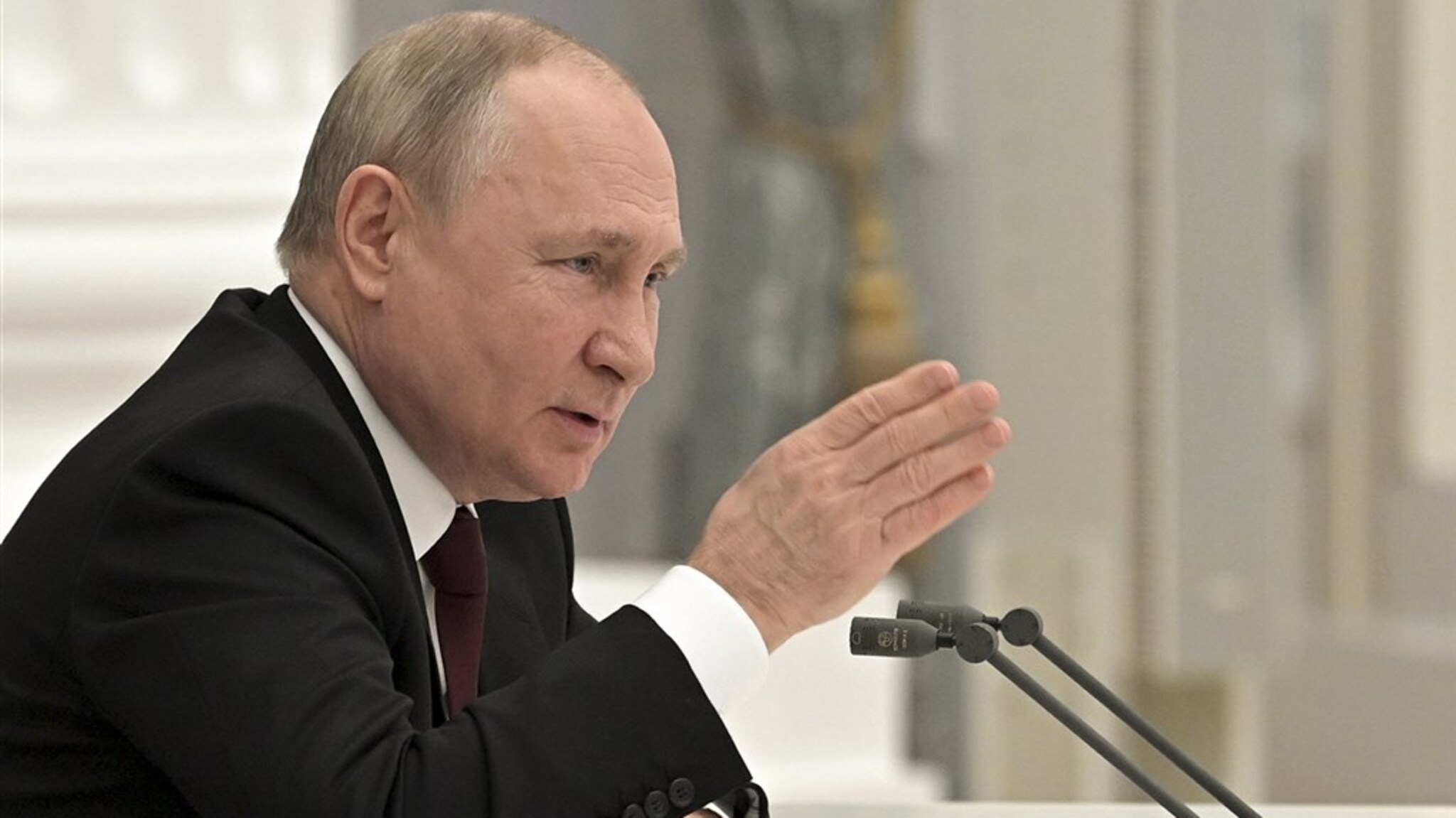The reaction of the international community to Putin’s recognition of the people’s republics has not been kind. However, the Russian president has so far received permission from Parliament to send soldiers to the region.
“It is natural that Putin would like to incorporate the renegade people’s republics,” says Hans van Koningsberg, professor of history and politics in Russia at the University of Groningen. “It can be arranged very quickly.”
Van Koningsbrugge refers to the National Security Council that Putin convened prior to his decision on recognizing the republics. His intelligence chief backed down and supported the proposal to “merge” the regions. The question is: will it stay that way?
two scenarios
Probably not, says Frans Osinga, brigadier general of the Royal Dutch Air Force and professor by special appointment at Leiden University. Like many others, he saw Putin describing Ukraine as “a country that has no right to exist” in a historic television address. “This gives him a license to continue.”
Osenga anticipates two possible scenarios: “One is that Putin will wait and see. Keep the troops, but keep taking sanctions and letting things settle. Then let it escalate again in a few years at a time” the West is doing badly. Basically the same as last time with Crimea. ”
In the spring of 2014, Russia annexed Crimea, and then part of Ukraine. In eastern Ukraine, pro-Russian separatists also attempted to break free from the Luhansk and Donetsk regions. They declared the Luhansk and Donetsk People’s Republics.
“The second scenario is that Russia is taking advantage of the current momentum,” Osenga says. “They’ve come this far, and you’re not just building such a force. If Putin wants, he can advance to Kiev.”
Areas of no value at all
At the moment, the Russian president does not have much. “Under Putin’s leadership, NATO has grown,” says Van Koningsberg, who himself worked for a long time in Russia. “He sees it as his legacy: It’s a problem he must solve. Putin wants to leave his country behind.”
But so far, Putin has been backfiring in this regard, says Eastern Europe expert Michael Kemper. “If it stays that way, Russia has only really lost. A few years ago NATO was divided, now they are united. NATO has such good legitimacy to strengthen the eastern frontier. At first it would be a provocation.”
“It is a tactical victory and a strategic defeat,” Van Koningsberg added. “Although it is gaining some territory, pro-Western and especially anti-Russian sentiment in Ukraine has only increased in recent weeks.”
And with this region alone, Russia doesn’t get much done either. “It’s absolutely worthless areas,” says Kemper. “The people there are very poor. It only costs money for Russia.”
‘The Russian armed forces are strong enough’
But: if Russia already annexed the people’s republics, then they can be used to occupy more territory. “Certainly if he can expand the region to Crimea, then Putin can invade Ukraine from many sides,” explains military expert Osinga. Ukraine should then, so to speak, divide the army. ”
He also believes that the Russian armed forces are strong enough. “Russia has invested heavily in the military in recent years. It has been greatly modernized. It not only possesses large numbers of modern weapons systems, but also has the ability to deploy them in a coordinated and efficient manner.”
Osinga does not expect the Russian army to be strong enough to occupy Ukraine for long. “But this is not necessary. They can quickly invade Ukraine and install a puppet regime there. That would be a failure for the West.”







